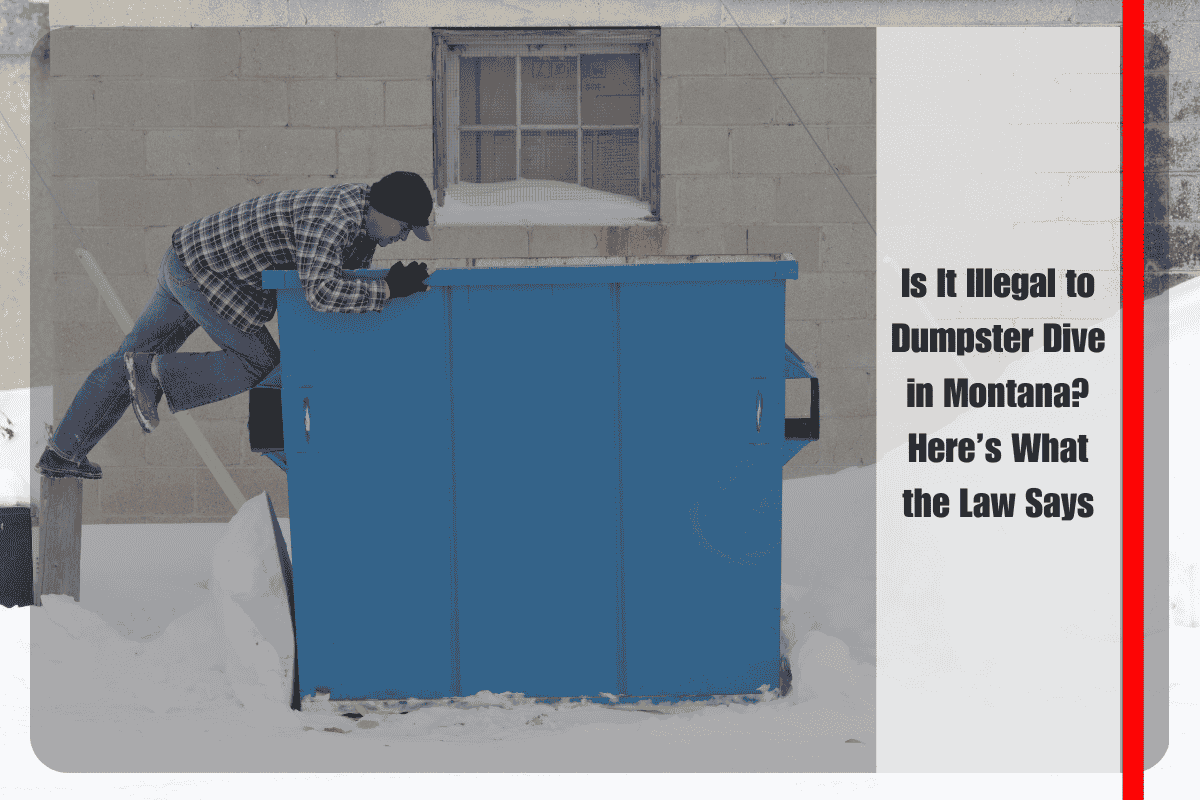Dumpster diving in Montana is generally legal statewide, as there is no specific statewide law that prohibits rummaging through discarded trash. However, this legality comes with important caveats related to local ordinances and trespassing laws, which vary significantly across different Montana cities and towns. For example, in cities like Billings, Great Falls, and some other municipalities, dumpster diving is explicitly prohibited by local laws.
In Billings, City Code Section 21-212 forbids disturbing refuse receptacles without authorization, punishable by fines or arrest. Similarly, Great Falls Municipal Code 8.8.190 prohibits salvaging refuse from authorized disposal areas, with violators facing potential jail time or fines. In these cities, diving in dumpsters on private or public property is illegal and can lead to legal trouble.
Conversely, in places like Missoula and Bozeman, dumpster diving is not explicitly outlawed, but individuals must still respect property rights and trespassing laws to avoid repercussions. This means avoiding dumpsters on private property without permission and observing “No Trespassing” signs. Trespassing on private property remains illegal throughout Montana, so even if dumpster diving itself is legal, accessing a dumpster on private land without consent can lead to trespassing charges.
For individuals interested in dumpster diving in Montana, it is essential to consider local regulations before proceeding. Public dumpsters behind retail stores, apartment complexes, or other commercial properties are generally considered fair game unless specifically restricted. Moreover, dumpsters that are locked or fenced off are off limits, as entering these areas can constitute illegal trespass.
Being aware of local rules and seeking permission from property owners when necessary can help prevent legal complications. While nighttime dumpster diving is not explicitly banned in Montana, it can raise suspicions and heighten risks of interactions with law enforcement, especially on private property. The best practice is to remain respectful of the area, avoid making messes, and maintain safety at all times during dumpster diving.
While dumpster diving is mostly legal in Montana, it is subject to strict adherence to local laws and trespassing regulations. To stay within the law, divers should avoid prohibited areas like Billings and Great Falls, respect private property boundaries, and comply with posted signage.
Checking with local authorities or municipal codes before diving is advisable to avoid fines, arrests, or other legal consequences. This patchwork of legal allowances and restrictions reflects balancing the rights of property owners with the practical and environmental benefits of dumpster diving as a way to reduce waste and provide for those in need.
Sources
(https://litefm955.com/is-dumpster-diving-legal/)
(https://detectingtreasures.com/dumpster-diving-in-montana/)
(https://my1035.com/dumpster-diving-laws-in-montana/)
(https://theriver979.com/dumpster-diving-great-falls-montana/)
(https://www.rolloffdumpsterdirect.com/dumpster-diving-illegal/)












